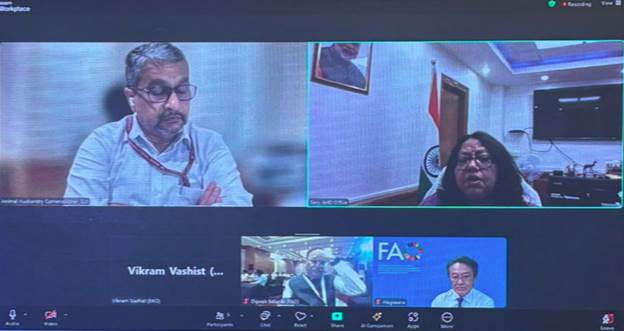
In a landmark initiative aimed at standardizing veterinary practices across India, the Food and Agriculture Organization (FAO) of the United Nations, in collaboration with the Department of Animal Husbandry and Dairying (DAHD), Government of India, organized a two-day workshop on the Finalization of Standard Veterinary Treatment Guidelines (SVTGs) in New Delhi. Held on August 8th and 9th, 2024, the workshop brought together 78 key stakeholders from the veterinary and animal health sectors, including representatives from ICAR Animal Science Institutes, Veterinary Universities, private sector organizations, and international bodies such as FAO, USAID, and Jhpiego.
The primary objective of the workshop was to develop a comprehensive SVTG document tailored to India’s specific needs. These guidelines will provide a robust framework for veterinary practitioners, ensuring consistency in prescription practices, reducing variability, and enhancing compliance among veterinarians. By establishing clear and standardized treatment protocols, the SVTGs aim to empower policymakers with effective tools to control and manage animal diseases more efficiently, ultimately contributing to broader public health goals.
Secretary of DAHD, Ms. Alka Upadhyaya, graced the valedictory session on August 9th, where she emphasized the importance of the animal husbandry sector in supporting livelihoods and ensuring food safety in India. With the sector growing rapidly, India faces frequent occurrences of both infectious and non-infectious diseases in its large livestock and poultry populations. Ms. Upadhyaya highlighted that only a few developing countries have established SVTGs, making this initiative crucial for India. She commended the efforts of all experts involved in drafting the guidelines and acknowledged the contributions of FAO and USAID in coordinating the workshop.
The workshop also focused on promoting Veterinary Drug Stewardship, with the SVTGs covering treatment guidelines for 274 diseases across 12 major species, including cattle, buffalo, sheep, goats, poultry, and more. These guidelines are designed to curb irrational and inconsistent treatment practices, which have long plagued the animal health sector. By promoting the rational use of veterinary drugs, the SVTGs will play a vital role in reducing the risks associated with drug misuse, including the development of antimicrobial resistance (AMR).
Dr. Abhijit Mitra, Animal Husbandry Commissioner, DAHD, inaugurated the workshop, emphasizing the department’s initiatives to contain AMR in India and the role of the SVTGs in supporting the National Action Plan on AMR. Dr. Raghavendra Bhatta, Deputy Director-General (Animal Science) of ICAR, stressed the need for the guidelines to be dynamic and periodically updated to stay relevant.
The outcomes of this workshop are expected to have a transformative impact on the veterinary sector in India. The adoption of SVTGs is anticipated to reduce antimicrobial and drug residues in animal-derived foods, thereby enhancing food safety. This initiative aligns with global best practices and advances the objectives of the One Health approach and the National Action Plan for AMR.
The collaborative efforts of FAO, DAHD, ICAR, and other stakeholders in developing these guidelines reflect a shared commitment to improving animal health, safeguarding public health, and ensuring the safety of the food supply chain in India.